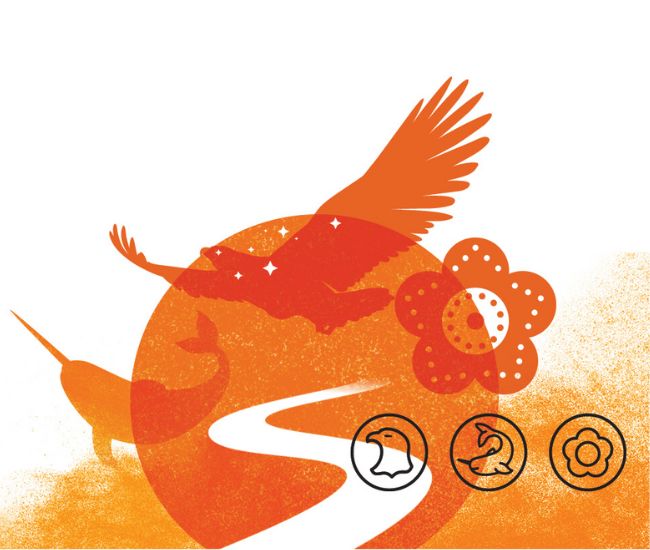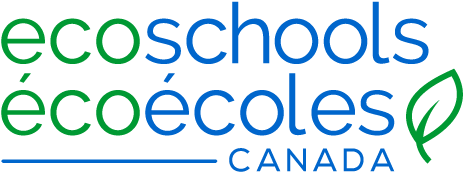National Day for Truth and Reconciliation:
Please note that the following blog post contains references to the former residential school system in Canada. These topics can be difficult to engage with. We encourage you to explore the following at your own pace.

Orange Shirt Day and National Day for Truth and Reconciliation
Orange Shirt Day and the National Day for Truth and Reconciliation call us to act on reconciliation and honour Indigenous knowledge, rights, protocols, and cultural recognition.
Truth and Reconciliation, along with Orange Shirt Day, is fundamentally about acknowledging the ongoing and historical injustices faced by Indigenous peoples, particularly caused by residential schools and colonization in Canada. These days of recognition promote understanding, healing, and reconciliation between Indigenous and other communities, recognizing the deep emotional and cultural impacts of these intergenerational experiences. The focus is on honouring those impacted by such systems, fostering dialogue, and creating pathways toward healing and mutual respect.
At EcoSchools Canada, our team is dedicated to actively engaging in community-building activities that foster the ongoing mending and strengthening of relationships with Indigenous Ways of Knowing. We commit to creating spaces for dialogue and active listening.
As we navigate this journey, some of the questions we have reflected on, and continue to reflect on as a team are:
- How are identity and the land interwoven?
- What does relational accountability mean in our commitments?
- How do we consider reconciliation, resurgence, collective care and positionality in knowledge?
- How can we cultivate a culture of listening and deepening within our communities that honours the needs of Indigenous peoples and fosters ongoing dialogue for healing and joy?
How are we acting upon reconciliation as an organization?
- EcoSchools Canada explicitly links our goals for a sustainable future with recognizing the historical and ongoing impacts of colonialism to foster comprehensive and intersectional environmental literacy.
- EcoSchools Canada provides Indigenous schools with unbarriered access to our programming, as all First Nations, Métis, and Inuit schools across the land can participate and certify with the EcoSchools program free of charge.
- EcoSchools Canada recognizes the importance of highlighting and centering Indigenous knowledge and Indigenous Ways of Knowing. With the intention of creating more opportunities for educators and students to root their learning through an Indigenous lens, we have created two new action cards to support ourselves and our community on this learning journey.
-
- Land Recognition and Reciprocity:
This action card was intentionally created through collaborations with Indigenous educators, community leaders, artists, and organizations that center Indigenous knowledge and relationships. Through multiple gatherings, reflections, and reviews, we sought a two-eyed seeing approach that focused on knowledge building, sharing, and actively supporting justice and cultural recognition. It provides inspiration and guidance on a variety of ways school communities may connect with and honour the land while building bridges with Indigenous communities, stories, and teachings that have stewarded and continue to steward our collective home.Schools may access the action card’s guidance and resources here.
- Indigenous Nature-based Technologies
Through this action card, students have the opportunity to learn about Indigenous TEK; the collective body of multi-generational knowledge, practices and beliefs that work with nature. This year EcoSchools Canada partnered with The Lo—TEK institute to highlight traditional ecological knowledge. The Lo-Tek Institute works to reintegrate Indigenous technologies that have been ignored, displaced or destroyed by colonial forces to support decolonization efforts.Exploring Indigenous Nature Based Technologies provides the space to build student capacity for intercultural understanding, empathy, and mutual respect (Call to action 63). This action invites students to discover the many valuable intricate technologies developed by Indigenous groups and to uncover why these technologies were displaced.School’s may access the action card’s guidance and resources here.
- Land Recognition and Reciprocity:

We are so grateful to the mindful knowledge keepers, community members, educators, and organizations with whom we foster relationships. Please take the time to support their ongoing work:
Nisagose (aunty in Michif) Caren Nagao is a Métis primary teacher living on the unceded traditional lands of the Secwépemc and Ktunaxa Peoples in Golden, B.C. Nisagose Caren has taught traditional skills such as bushcraft, jigging, local indigenous plant usage, and Kaa-wiichihitoyaahk (We take care of each other); how to care for ourselves, each other, and our outdoor relations.
Hanako Nagao is a Métis artist residing in the unceded territories of the Ktunaxa and Secwepemc nations, in the mountains of BC. She found a passion for art at a young age, and has been creating ever since, while also studying and working in the field of arts and cultural management. Her work can be seen around the town of Golden, including some murals on local businesses.
Moccasin Identifier™ is a Treaty education and awareness initiative that aims to “cover Canada in moccasins” so that all Canadians understand their Treaty responsibilities and Indigenous relationship to land. Through two main streams: education and place-knowing the Moccasin Identifier™ shares lesson plans, (available in both English and French and Anishinaabemowin) videos, stenciling kits, place-knowing resources and more. Using the culturally appropriate symbol of a moccasin, the Moccasin Identifier™ shows Indigenous relationship to land, like footprints on the ground.
Natural Curiosity is an environmental education program developed by the Dr. Eric Jackman Institute of Child Study Laboratory School (OISE, University of Toronto). Natural Curiosity’s work provides support for educators’ professional learning within environmental inquiry and integrating Indigenous perspectives into education, guided by the best-selling teacher resource, Natural Curiosity 2nd Edition: The Importance of Indigenous Perspectives in Children’s Environmental Inquiry (available in English and French).
The Lo-TEK institute works to empower communities whose knowledge systems have been violently dismissed across educational and environmental spheres, while also guiding non-Indigenous communities on how to understand and apply traditional and Indigenous knowledge in a respectful and responsible way.
How are we moving forward?
As an organization, we are working to build reciprocal relationships with Indigenous communities. We are committed to integrating meaningful learning opportunities that are rooted in understanding our work as treaty people, both in our programming and across our team.
We encourage you to explore the resources and organizations below and consider how you, and your school community might explore and develop your own journey of reconciliation.
Resources & Partners
- Roots for Learning and Collaboration (EcoSchools Canada & Natural Curiosity, Moccasin Identifier, Caren Nagao) – English / French
- Knowledge Building Resource Guide (Natural Curiosity & EcoSchools Canada) – English / French
- It’s Our Time – Educational Toolkit (Assembly of First Nations) – English / French
- Deepening Knowledge (OISE) – English /French
- The Seven Sacred Laws (Turtle Lodge) – English / French
- Indigenous Knowledge (Resources for Rethinking) – English / French
- Knowledge Space (The National Centre for Collaboration in Indigenous Education) – English / French
- What we have learned – Principles of Truth and Reconciliation (The Truth and Reconciliation Commission of Canada) – English / French
- Indigenous Learning Resources (Outdoor Learning School & Store) – English
- Calls to Action (Truth and Reconciliation Commission of Canada) – English / French
- Reconciliation Through Education (National Centre for Truth and Reconciliation) – English / French
- Reconciliation Begins with the Land (Project H.O.M.E) – English
- Our Way Is a Valid Way Professional Educator Resource (Western and Northern Canadian Protocol) – English
- Truth and Reconciliation in the Classroom Student Resource (First Nations Métis Inuit Education Association of Ontario) – English
- Our Home on Native Land (Native Land Digital) – English / French
- Whose Land (TakingITGlobal, Canadian Roots Exchange, Bold Realities) – English
- ETFO Starting from the Heart: Going Beyond the Land Acknowledgement – English
- Learning Modules Education Toolkit (Assembly of First Nations) – English / French
- 4 seasons of Reconciliation (Reconciliation Education) – English / French
- Respect, trust, treaties, and reconciliation (Circles for Reconciliation)- English
- United Nations Declaration on the Rights of Indigenous Peoples (United Nations) – English
